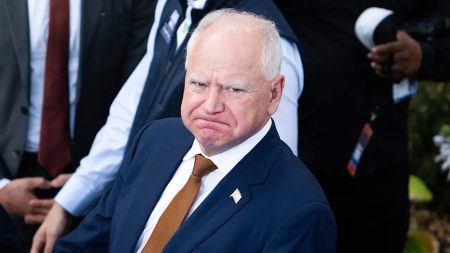Cameroon’s Biya Secures 8th Term: Africa’s Aging Leadership Paradox
Age and Power in Africa’s Political Landscape
In a striking display of political longevity that has become increasingly common across the African continent, President Paul Biya of Cameroon has secured his eighth consecutive term in office, according to official election results announced last week. At 91 years old, Biya’s latest victory ensures that, should he complete this term, he will remain in power until the remarkable age of 99. The election results, while contested by opposition parties citing irregularities, have been formally recognized by Cameroon’s electoral commission, cementing Biya’s position as one of Africa’s longest-serving leaders. His continued presidency highlights a fascinating paradox that defines contemporary African politics: on the world’s youngest continent, where the median age hovers around 19 years, a significant number of nations find themselves governed by leaders in their seventies, eighties, and even nineties. This stark generational divide between rulers and the ruled raises profound questions about representation, governance, and the future of democratic institutions across the continent.
The phenomenon of elderly leadership is not unique to Cameroon. Across Africa, from Equatorial Guinea’s Teodoro Obiang Nguema Mbasogo (82) to Zimbabwe’s recently deceased Robert Mugabe (who ruled until age 93), advanced age has seemingly become a common characteristic of political leadership. Political analysts point to various factors contributing to this trend, including constitutional amendments that eliminate term limits, electoral systems that favor incumbency, and deeply entrenched patronage networks that make leadership transitions difficult. “What we’re witnessing is the institutionalization of gerontocracy in several African nations,” explains Dr. Adama Gaye, a West African political scientist. “Many of these leaders came to power during post-colonial transitions and have systematically dismantled the democratic guardrails that might facilitate peaceful transitions.” The contrast becomes even more pronounced when considering that approximately 60% of Africa’s population is under the age of 25 – creating a governance model where leaders often belong to their citizens’ grandparents’ generation, with vastly different formative experiences, technological understanding, and visions for the future.
The Historical Context and Modern Implications
President Biya’s political journey offers an illuminating case study in this phenomenon. Having initially assumed power in 1982 following the resignation of Cameroon’s first president, Ahmadou Ahidjo, Biya has maintained his grip through a combination of constitutional maneuvering, security apparatus loyalty, and strategic international alliances. His latest electoral victory extends a tenure that has already spanned four decades, encompassing the entirety of many Cameroonian citizens’ lifetimes. During his rule, Cameroon has witnessed significant historical transformations – from the end of the Cold War through globalization to the digital revolution – yet its leadership has remained remarkably consistent. “The continuity provided by President Biya has offered stability in certain respects,” notes Cameroonian historian Dr. Marie-Claire Nnomo, “but it has also created significant governance challenges, particularly regarding innovation, technological adaptation, and addressing the evolving needs of a youthful population that has no memory of a Cameroon without Biya at its helm.”
This leadership age gap manifests in policy approaches as well. Many of Africa’s aging leaders demonstrate governance priorities shaped by their formative experiences in post-independence movements, emphasizing sovereignty, territorial integrity, and state control – sometimes at the expense of digital innovation, entrepreneurship, and the gig economy priorities that resonate with younger populations. The resulting disconnect becomes evident in nations like Uganda, where 77-year-old President Yoweri Museveni, in power since 1986, has struggled to connect with a population where over 75% of citizens were born after he took office. Similar dynamics play out across the continent, from Algeria to Equatorial Guinea, creating what political scientist Dr. Olufemi Vaughan calls “a crisis of representation where national policies and priorities may not reflect the lived experiences and urgent concerns of the demographic majority.” This representational gap becomes particularly consequential as Africa faces unprecedented challenges requiring innovative solutions – from climate adaptation and rapid urbanization to harnessing the potential demographic dividend of its youth bulge.
Youth Movements and Democratic Aspirations
The persistence of aging leadership has not gone unchallenged. Across Africa, youth-led movements advocating for political renewal have gained momentum, utilizing digital platforms to organize and amplify demands for more representative governance. In Senegal, the Y’en a Marre (“Fed Up”) movement helped prevent then-President Abdoulaye Wade from securing a third term at age 85. In Algeria, youth-led Hirak protests contributed to the resignation of President Abdelaziz Bouteflika at 82. In Sudan, young activists played a central role in the 2019 ouster of Omar al-Bashir after three decades in power. These movements reflect growing impatience with leadership disconnected from contemporary realities and aspirations. “What we’re witnessing is an intergenerational reckoning,” explains Cameroonian political activist Michelle Ndoki. “It’s not simply about age but about responsiveness to changing circumstances and willingness to incorporate new perspectives into governance frameworks. The frustration emerges when leaders seem more focused on maintaining power than addressing the urgent needs of societies undergoing rapid transformation.”
The democratic implications of extended presidential tenures extend beyond representational concerns. Extended presidencies often correlate with declining institutional independence, as judicial systems, electoral commissions, and legislative bodies gradually lose autonomy through strategic appointments and resource allocation decisions. This institutional erosion creates self-reinforcing power structures that make democratic transitions increasingly difficult. International governance expert Dr. Nic Cheeseman observes that “the longer a leader remains in office, the more the state apparatus tends to reflect their personal preferences rather than constitutional principles, creating formidable barriers to meaningful political competition.” Such dynamics help explain why nations with aging, long-serving leaders often experience democratic backsliding over time, with elections becoming procedural exercises rather than meaningful opportunities for leadership renewal. In Cameroon, despite multiple opposition candidates challenging President Biya’s reelection, few observers expressed surprise at his official victory – a pattern repeated across several African nations where elderly incumbents seemingly defy both actuarial tables and democratic principles.
Finding Balance: Tradition, Experience and Innovation
The conversation around aging leadership in Africa requires nuance, acknowledging both legitimate concerns about representation and the potential value of experience. Many societies across the continent traditionally accord respect to elders as repositories of wisdom and institutional memory. This cultural context means simple ageism fails to capture the complexity of leadership dynamics. “There’s an important distinction between chronological age and governance approach,” argues Nigerian political philosopher Dr. Olufemi Taiwo. “The concern isn’t primarily about years lived but about adaptability, inclusivity in decision-making, and willingness to incorporate diverse perspectives.” Indeed, some older African leaders have demonstrated remarkable flexibility and innovative thinking – Nelson Mandela became South Africa’s president at 75 but established governance frameworks that emphasized inclusion and succession planning. Similarly, Ghana’s John Kufuor stepped down at 70 after completing his constitutionally permitted terms, reinforcing democratic norms despite his advanced age.
As Cameroon contemplates another eight years under President Biya’s leadership, the nation exemplifies broader continental tensions between continuity and change, between the governance approaches of independence-era leaders and the aspirations of digital-native generations. The resolution of these tensions will shape Africa’s political trajectory for decades to come. Finding constructive paths forward likely requires institutional reforms rather than simply focusing on individual leaders’ ages – strengthening independent electoral commissions, enforcing term limits, and creating transparent succession mechanisms that allow for orderly transitions while preserving institutional knowledge. “The key question isn’t whether Africa’s leaders are too old,” concludes governance expert Mandisa Mbali, “but whether governance systems are sufficiently responsive to citizens’ evolving needs and aspirations across generations.” As Africa continues its demographic transformation toward an ever-younger population, the sustainability of governance models featuring leaders from its oldest citizens becomes an increasingly urgent consideration – one that will ultimately determine whether nations like Cameroon can harness their demographic potential or find themselves constrained by leadership disconnected from contemporary realities.









